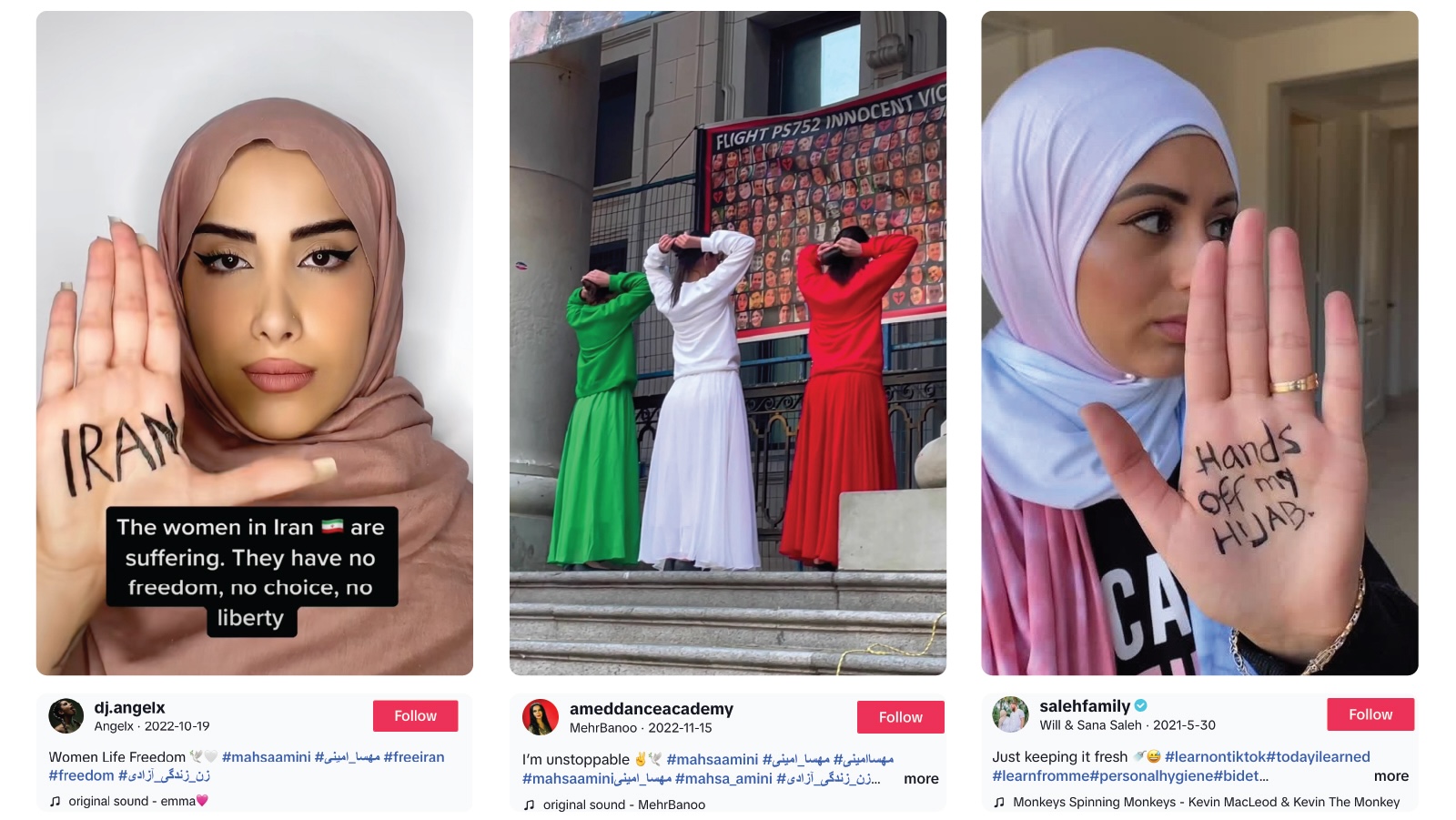Cyberfeminism in the Age of TikTok
April 07, 2025

Associate Professor of Communication Sahar Khamis on how the social media platform has fueled feminist activism around the world.
By Jessica Weiss ’05
Social media has come under increasing scrutiny for its influence on young men, with platforms like YouTube, Reddit and TikTok accused of fostering misogyny—from the rise of the “manosphere” to the spread of toxic masculinity and incel culture. Netflix’s recent hit “Adolescence” has only intensified these concerns, exposing the darker sides of internet culture where harmful ideologies take root.
But while much of the conversation around social media and gender focuses on its dangers, these platforms have also been powerful tools for progress—particularly for feminist activism, says Associate Professor of Communication Sahar Khamis, who studies how social media has reshaped activism in the Middle East and beyond.
On TikTok, Khamis says, feminist creators have harnessed the platform’s algorithm, video-editing features and viral trends to educate, mobilize and build global communities around gender equality. As TikTok faces an uncertain future in the U.S., we spoke with Khamis about the platform’s unique role in feminist organizing—and what might be lost if it disappears.
First, how do you define cyberfeminism?
Cyberfeminism refers to how women use digital platforms, especially social media, to advocate for issues of importance to them. This includes broad sociopolitical causes like democracy and human rights, as well as specific concerns such as sexual harassment, workplace discrimination, domestic violence, and equal pay. They are using it to amplify their voices and build global solidarity. A powerful example is #MeToo, which became a global movement largely due to its virality on Twitter.
What makes TikTok an effective tool for this type of activism?
TikTok’s unique affordances—short-form videos, audio-visual effects, music—blend creativity with activism. While originally designed for entertainment, the platform has evolved into a space for serious political discourse. For example, young Palestinian activists have leveraged the platform to share their narratives, using formats like makeup tutorials to subtly incorporate political messages—such as drawing the Palestinian flag on their faces.
You’ve written about feminist TikTok campaigns, such as #MahsaAmini, which erupted in Iran in 2022 following the murder of Mahsa Amini. How did TikTok contribute to this?
The #MahsaAmini and #WomenLifeFreedom campaigns gained traction through TikTok’s visual and participatory culture. Activists used short videos, music and celebrity endorsements to amplify their message. The “Hair For Freedom” campaign, where celebrities and public figures across the world cut their hair in solidarity, spread widely thanks to TikTok’s global reach. The framing was especially powerful—everything from the choice of words and music to the involvement of high-profile figures helped drive international support and boost visibility.
Can you share other examples of TikTok’s role in feminist activism?
TikTok has played a key role among feminist activists in Palestine, where women in Gaza document their daily lives, struggles and resistance through short videos and creative content. They are using the visual power of TikTok to document their suffering and to draw attention to their everyday struggles. This type of activism has proven influential beyond the platform—for instance, AJ+’s Emmy Award-winning series “It's Bisan from Gaza and I’m Still Alive” highlighted the power of social media storytelling in shaping global perceptions.
How might a U.S. TikTok ban affect digital activism?
A TikTok ban could significantly impact social justice and human rights movements, but digital activists are very technologically-savvy—they have always found alternative creative ways to circumvent restrictions or create something new, and they would likely do so again in this case.
Screenshots from dj.angelx, ameddanceacademy and salehfamily on TikTok. Collage by Jaye Nelson.

